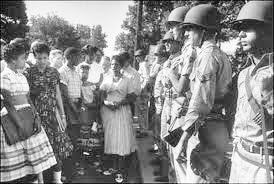Gospel from
Matthew 6
Jesus said to his
disciples:
“No one can serve
two masters.
He will either hate
one and love the other,
or be devoted to
one and despise the other.
You cannot serve
God and mammon.
“Therefore I tell
you, do not worry about your life,
what you will eat
or drink,
or about your body,
what you will wear.
Is not life more
than food and the body more than clothing?
So do not worry and
say, ‘What are we to eat?’
or ‘What are we to
drink?’or ‘What are we to wear?’
Your heavenly
Father knows that you need them all.
But seek first the kingdom of God and his
righteousness,
and all these things will be given you
besides.
Do not worry about
tomorrow; tomorrow will take care of itself.
Reflection:
A few years back a very silly simple song became a huge
hit. It was a reggae tune sung by Bobby
McFerrin called: "Don't Worry, Be
Happy" I’m sure many of you
remember it.
For a while it seemed everywhere you went someone was humming
or singing this silly song. People would pass each other and smile and then greet
each other with a – Don’t Worry, Be Happy.
The main lyric went:
“In every life we have some trouble,
but when you worry you make it double:
don't
worry, be happy.”
That is what Jesus is saying to us today. Three times Jesus
insists that his disciples – and we – not worry about life, food or drink, the
body or clothing and he urges us to put our confidence in God, to serve God FIRST
There are two types of worries:
- The worry that comes from constantly
wanting more …
- And the worry that comes when you truly don’t
have enough …
Many of us fall into the first category. We have enough
we have food and clothing and a roof over our heads, but we are constantly
seeking more. What is Jesus saying to us?
He says don’t try to serve two masters God and mammon or God
and money. You can’t do it! You must choose. If you serve money – if that is
what you think about most, work for most, constantly wanting more, always
living for tomorrow and the possessions it will bring – that only produces anxiety
and worry. The Gospel warns those of us who have enough of life’s necessities,
not to give in to the greedy desire to always want more.
Jesus says: Be happy with what you have!
We who are blessed with enough need to listen when Jesus
says:
“Seek first the
kingdom of God and his righteousness.”
Jesus says to each of us today – seek God first and be
happy because happiness will not come from making money your God! He says if you really want to be happy ask
yourself these questions:
·
Do I put Christ first in my life?
·
Do I spend time with Him each day in
prayer?
·
Do I study and meditate on His Word so that I
can grow in my knowledge and understanding of Him and how He desires me to
live?
To seek God’s Kingdom also requires us to find our place of
service in that kingdom; using the gifts, talents, skills and abilities that He
has bestowed on each of us for this very purpose.
Jesus says to us today – stop worrying about tomorrow and
live for God’s kingdom today, in the now of life. Make this moment count for God.
He tells us the way to find happiness, contentment and
security is by embracing the mission of spreading the good news about Jesus and
his kingdom to the world.
To those who suffer from the second type of worry, who
are struggling just to survive, to those of us who truly worry about how we
will feed our families, these words are more challenging. When you aren’t sure if you can pay the rent,
or put food on the table, or when you face serious health issues; the
simplistic instruction “Don’t worry, Be Happy” is a bit harder to hear. Jesus says, seek the Kingdom of God first and
have trust. Trust that when you do you will see the Kingdom of God working as
it should.
That’s really what Jesus means by “the Kingdom of God.” He means all of us loving our neighbor as ourselves. Is it enough for us who have plenty to tell
those who do not have enough “Don’t worry Be Happy?”
This question reminds me of the great teaching in the
Epistle of James, where St. James says:
“My
friends, what good is it for one of you to say that you have faith
if your
actions do not prove it? Can that faith save you? Suppose
there
are brothers or sisters who need clothes and don't have enough
to eat. What
good is there in your saying to them, “God bless you!
Keep
warm and eat well!” if you don't give them the necessities of life?
So it is
with faith: if it is alone and includes no actions, then it is dead.”
James 2:14-18
Jesus said: Seek first the kingdom of God and his
righteousness”
Jesus is asking each of us today to help make The Kingdom
of God a reality
We do that when those of us with enough, make sure those
who truly do struggle, have the blessings God promises. That is how the Kingdom
is meant to work. Christians – followers
of Christ – taking care of each other, loving each other. This is the kind of conduct that characterize
the reign of God. For this to be, requires that those of us who do have enough of
life’s necessities not be fixated on a quest for more, but rather cooperate with
God in providing for those truly in need in his Kingdom
God has actually set up for us a win-win situation. When those who are better off help those who
are less fortunate, those who are poor can let go their worries about survival;
and those better off can be released from the anxiety that comes from enslavement
to possessions. That way both rich and
poor can truly to live out McFerrin’s lyric:
“Don’t worry, be happy!”
When we shift our focus from worrying about money or the future,
to walk in the way of Jesus – building the Kingdom of God – then we begin to
find true contentment and meaning in our lives?
And that really is good news.




